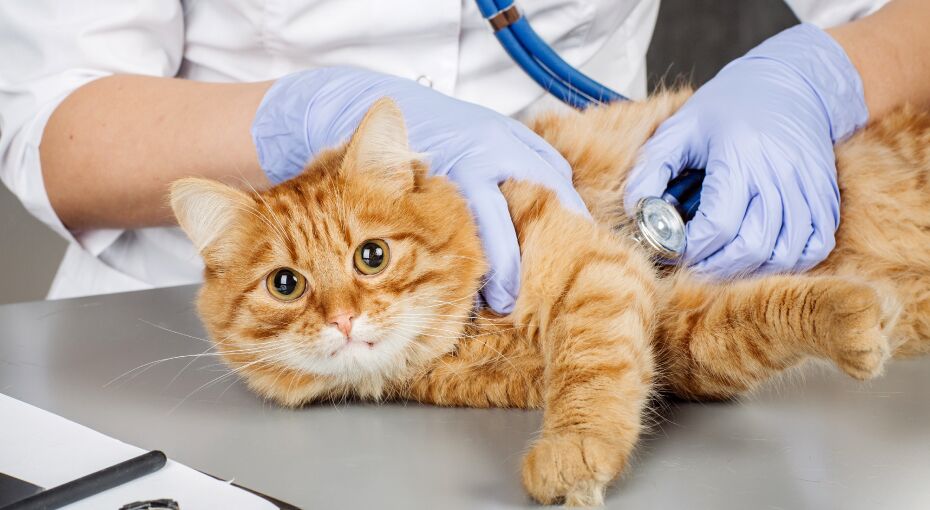Key Takeaways:
- Seizures in puppies can be caused by a variety of factors, including genetics, infections, and metabolic disorders.
- It is important to monitor and record the duration, frequency, and characteristics of seizures in puppies to help diagnose the underlying cause.
- Puppies experiencing seizures should be taken to a veterinarian for a thorough examination and diagnostic tests to determine the cause and appropriate treatment.
- Treatment options for seizures in puppies may include medication, dietary changes, and management of underlying conditions.
- With proper care and treatment, many puppies with seizures can lead happy and healthy lives. Regular veterinary check-ups are essential for monitoring their condition and adjusting treatment if necessary.
Have you ever wondered why your adorable puppy sometimes experiences strange episodes where they convulse and lose control of their body? It can be a terrifying sight for any pet owner, but don't worry, you're not alone. Seizures in puppies are more common than you might think, affecting around 5% of all young dogs. Understanding this topic is essential because it allows us to provide the best care for our furry friends and ensure their well-being. In this article, we will explore the causes, symptoms, and treatment options for seizures in puppies. By delving into this subject, you will gain valuable knowledge that can help you support your little companion through these challenging moments. So let's dive right in and uncover the secrets behind seizures in puppies!
Understanding Seizures in Puppies: Causes and Symptoms
Causes of Seizures in Puppies
Seizures in puppies can be caused by various factors. One common cause is epilepsy, which is a neurological condition that can be inherited. Other causes include head injuries, infections, toxins, and metabolic disorders. Sometimes, the exact cause of seizures may not be known. It's important to consult with a veterinarian to determine the underlying cause of your puppy's seizures.
Symptoms of Seizures in Puppies
Recognizing the symptoms of seizures in puppies is crucial for their well-being. During a seizure, a puppy may experience convulsions or uncontrollable shaking. They may also exhibit behaviors such as drooling, foaming at the mouth, loss of consciousness, and muscle stiffness. Some puppies may urinate or defecate during a seizure. It's important to note the duration and frequency of these episodes as it can help your veterinarian diagnose the type of seizure your puppy is experiencing.
Recognizing Seizures in Your Puppy: What to Look For
Physical Signs
When trying to recognize seizures in your puppy, there are several physical signs to look out for. These include sudden jerking movements, loss of balance or coordination, falling over, and muscle rigidity. Pay attention if your puppy starts paddling their legs or chomping their jaw involuntarily.
Behavioral Signs
In addition to physical signs, there are behavioral signs that may indicate a seizure in your puppy. These can include confusion or disorientation before and after a seizure episode. You might notice changes in your puppy's behavior such as restlessness or aggression during or after a seizure.
First Aid for Seizures in Puppies: What You Can Do
Creating a Safe Environment
If your puppy experiences a seizure, it's important to create a safe environment to prevent any injuries. Clear the area of any sharp objects or furniture that your puppy may bump into during the seizure. Avoid trying to restrain or hold your puppy down as this can potentially harm both you and your pet.
Observing and Documenting
During a seizure, carefully observe and document the duration and intensity of the episode. Note the time it started and ended, as well as any specific behaviors or symptoms exhibited by your puppy. This information will be helpful for your veterinarian in diagnosing and treating your puppy's seizures.
The Impact of Seizures on a Puppy's Health: Are They Dangerous?
Seizures can have various impacts on a puppy's health, depending on their frequency and severity. While occasional seizures may not pose immediate danger, frequent or prolonged seizures can be harmful to a puppy's overall well-being. Seizures can cause physical injuries such as fractures from falling during convulsions or tongue biting. Additionally, repeated seizures can lead to brain damage over time.
It is essential to consult with a veterinarian if your puppy experiences seizures regularly or if their seizures last longer than usual. The veterinarian will assess the underlying cause of the seizures and recommend appropriate treatment options to manage them effectively.
Treating and Preventing Seizures in Puppies: Available Options
Treatment Options
Treating seizures in puppies typically involves medication prescribed by a veterinarian. Anti-seizure medications help regulate brain activity and reduce the frequency and intensity of seizures. It is crucial to follow the prescribed dosage and schedule provided by the veterinarian for optimal results.
In some cases, dietary changes may also be recommended as certain foods can trigger seizures in susceptible puppies. Your veterinarian may suggest a specific diet that is low in potential seizure triggers.
Prevention Measures
While it may not be possible to prevent all seizures in puppies, there are some measures you can take to minimize the risk. Avoid exposing your puppy to known toxins or substances that can trigger seizures, such as certain medications or chemicals. Providing a safe and stress-free environment for your puppy can also help reduce the likelihood of seizures.
Regular veterinary check-ups and following recommended vaccination schedules are crucial for overall health maintenance, which can indirectly contribute to preventing seizures in puppies.
Long-Term Effects of Seizures on a Puppy's Development: What to Consider
Seizures can potentially have long-term effects on a puppy's development, especially if they occur frequently or are left untreated. Prolonged seizures or clusters of seizures can lead to brain damage and cognitive impairments. This can affect a puppy's learning abilities, memory retention, and overall behavior.
It is important to seek proper medical care for your puppy if they experience seizures regularly. Early diagnosis and appropriate treatment can help minimize the long-term effects of seizures on their development. Regular follow-up visits with the veterinarian will allow monitoring of your puppy's progress and adjustment of treatment plans if necessary.
In conclusion, seizures in puppies can be a cause for concern but can often be managed with proper care and treatment. It is important to consult a veterinarian if your puppy experiences seizures to ensure their well-being and provide them with the necessary support.
Is it normal for puppies to have seizures?
Idiopathic epilepsy refers to seizures that occur in dogs without a known cause. Typically, these seizures occur in dogs aged 6 months to 6 years. While any breed can experience seizures, idiopathic epilepsy is more prevalent in border collies, Australian shepherds, Labrador retrievers, beagles, Belgian Tervurens, collies, and German shepherds.
What can trigger a puppy to have a seizure?
Although the exact cause of epilepsy in dogs is unknown, veterinarians believe that it may have a genetic component. Other factors that can lead to seizures in dogs include abnormalities in electrolytes or blood, such as low blood sugar, severe anemia, cancer, brain tumors, brain trauma, metabolic diseases, and exposure to toxins.
What does a seizure look like in a puppy?
Signs that a dog is having a seizure include muscle spasms, jaw chomping, excessive drooling, uncontrolled urination or defecation, and paddling with their limbs as if they are treading water. Seizures can range from 30 seconds to five minutes in duration.
Why is my 3 month old puppy having a seizure?
There are various factors that can cause seizures in dogs, such as head injuries, heatstroke, low blood sugar, brain bleeding, brain tumors, toxins, and a condition known as 'idiopathic epilepsy'. If your dog experiences a seizure, it is crucial to have them examined by a veterinarian, even if they appear to have recovered.
How many seizures is too many for a puppy?
If your pet experiences a seizure that lasts for more than five minutes or has multiple seizures in a day (referred to as cluster seizures), it is crucial to seek immediate veterinary care for your pet.
What happens to a puppy after a seizure?
Following a seizure, dogs commonly exhibit post-seizure symptoms. These symptoms may vary but can include restlessness, weakness, confusion, heavy breathing, excessive energy, tiredness, and occasionally, unprovoked aggression. These symptoms can persist for a few minutes up to a full day.

















